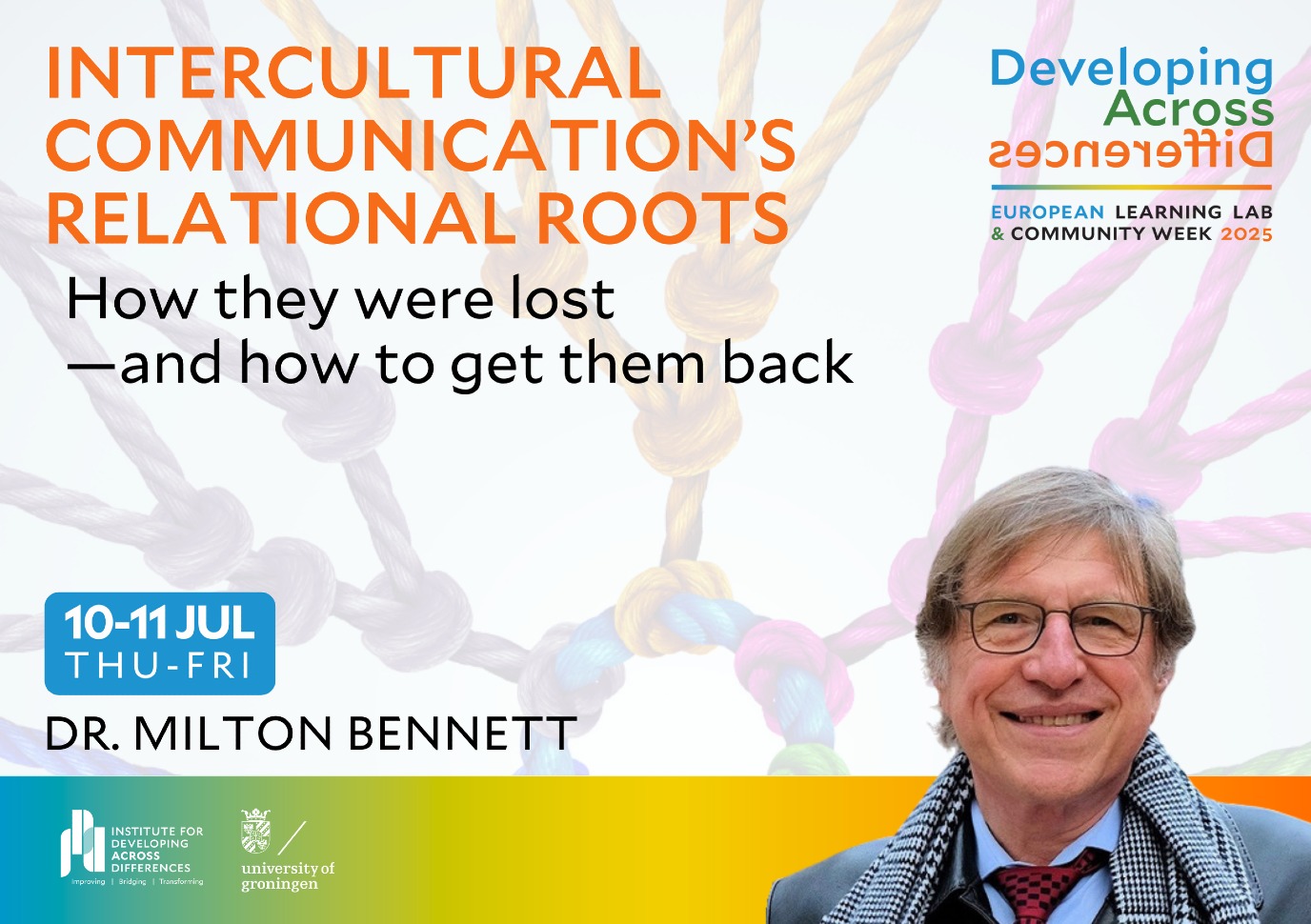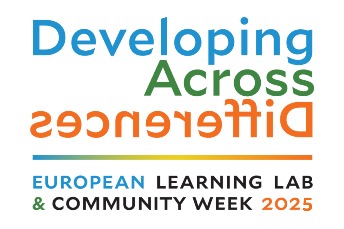Developing Across Differences: The Relational Roots of Intercultural Communication

Originally, the important part of “intercultural communication” (IC) was communication. In The Silent Language, the first popular treatment of the topic, Edward T. Hall defined culture as a kind of collective communication, stating that the key to cross-cultural effectiveness was learning how to operate in alternative communication systems.
Over the years, the emphasis in IC has shifted to culture — particularly to the comparison of cultures in terms of values, beliefs, and behaviors. This course returns to the relational roots of the field to construct an updated and expanded set of “observational categories” that compare communication systems. These categories can be easily incorporated into intercultural training and education to guide a more coherent development of IC competence.
WHY ATTEND?
Intercultural practitioners (trainers, facilitators, consultants, coaches) and scholars of intercultural communication are impeded by paradigmatic confusion in the field; we generally want outcomes that improve communication, but we often use training and research tools that are based in comparative anthropology or cross-cultural psychology.
Following the principle of “coherent theory generates powerful practice,” the course provides a practical way to improve coherence and effectiveness by coordinating both methods and outcomes within a communication paradigm.
(Re)visit the fundamental what, why and how (practice) of understanding, developing, and using constructed observational categories to “engage with others” (relationally) in order to more effectively recognize and communicate across cultural differences.
Practical information
|
Dates & location
|
10 - 11 July 2025 Academy Building (Broerstraat 5) or Harmonie Building (Oude Kijk in Het Jatstraat 26) |
|
Level
|
PhD/Postdoc/Practitioners May be appropriate for some MA students; contact the organisers for consultation about eligibility |
|
Fee
|
€ 1050 |
|
Academic coordinators
|
Dr. Milton Bennett |
|
Contact
|
ic rug.nlor info iddifferences.org
|
Requirements
Level requirements
The DAD is for multipliers who help individuals, organizations and societies better recognize, appreciate and use differences as a way of better communicating, working and thriving together.
These are (in-house and external) trainers, educators, consultants, coaches, researchers, scholars, facilitators, HR staff, advanced-level (MA+) students, and professional development specialists with 5+ years of experience/study in the greater Differences field. Contact the organisers at ic rug.nl or info iddifferences.org for consultation about appropriateness and eligibility.
It is expected that the participants have a sufficient command of the English language to actively participate in the discussions and to present their own work in English.
Participant profile
This course is for you if are:
-
An intermediate-level practitioner (trainer, facilitator, consultant, coach) who designs and delivers intercultural training / learning in either domestic multicultural or global intercultural contexts.
-
An academic / scholar working in intercultural communication and related fields who wishes to explore an updated communication-based alternative to various cultural comparison schemes often used for research and curriculum design in education, social service, and business contexts.
Contact the organisers at ic rug.nlor info iddifferences.org if you have questions about the suitability of this course for your circumstances.
Learning outcomes
Learning outcomes
In this course, you will learn how to help yourself and those you work with so that you/they can better:
-
Learn an updated and expanded version of the original intercultural communication approach to observing cultural differences.
-
Appreciate the importance of using communication-based theory and practice to coherently facilitate developing communication competencies such as empathy and mutual adaptation.
-
Consider how to “inoculate” for various forms of ethnocentrism and allegations of stereotyping that typically accompany discussion of cultural differences.
-
Share illustrative experiences of applying communication-based strategies to domestic and global training and education contexts.
Workload
12 hours of in-class learning and active participation using experiential methods.
Upon successful completion of the programme, the Summer School offers a Certificate of Attendance that mentions the workload of 12 hours (28 hours corresponds to 1 ECTS). Students can apply for recognition of these credits to the relevant authorities in their home institutions, therefore the final decision on awarding credits is at the discretion of their home institutions. We will be happy to provide any necessary information that might be requested in addition to the certificate of attendance.
Course schedule
Sunday, 6 July
15.00-18.00 Optional networking event
Thursday, 10 July - Friday, 11 July
09.00-17.30
Learning approach
This course format is one that uses conceptual inputs, discussion, demonstrations of different techniques, and peer sharing.
Introduction to lecturer

Milton Bennett, PhD
Thanks to Dr. Milton Bennett’s four decades of seminal contributions —including the groundbreaking Developmental Model of Intercultural Sensitivity (DMIS)— the study and practice of intercultural development holds, today, a core position within the greater Differences field.
A consummate teacher and eloquent communicator who is frequently requested to comment on current affairs, Milton has held a tenured position at Portland State University (US), executive development positions with Dartmouth’s Tuck School of Business (US) as well as several corporate universities, and currently maintains adjunct appointments in Europe.
In addition to his ongoing research, consulting, and training, he has recently introduced the Intercultural Viability IndicatorTM, an instrument designed to assess and support organizational-level intercultural competence.
Application procedure
|
Deadline for application
|
Regular registration closes on 3 May 2025.
Late registration closes on 1 July 2025. |
|
Date of selection
|
Within 72 hours following registration, you will be contacted directly by the organisers about your application.
|
|
Application
|
Participants submit payment and details about their interest at the link below (click the "Apply now!" button). They will be contacted directly by the organisers about their experience and the suitability of the course.
|
Please note that as all courses are subject to meeting minimum enrolments, the DAD team will confirm on or before 19 May 2025 that your course is taking place. We strongly advise you not to book non-refundable travel until you have received this confirmation. In all cases, refunds for courses are not available except in the case of course cancellation by the DAD organisers. In the case that your preferred course is cancelled, you are welcomed to enroll in an alternative course or request a refund. You will be notified on or before 19 May 2025 if the DAD course is cancelled. This policy is different from that of other University of Groningen Summer School and Language Centre courses. Full details are available on the Developing Across Differences (DAD) Learning Lab & Community Week Terms and Conditions page.


| Last modified: | 12 March 2025 10.41 a.m. |
